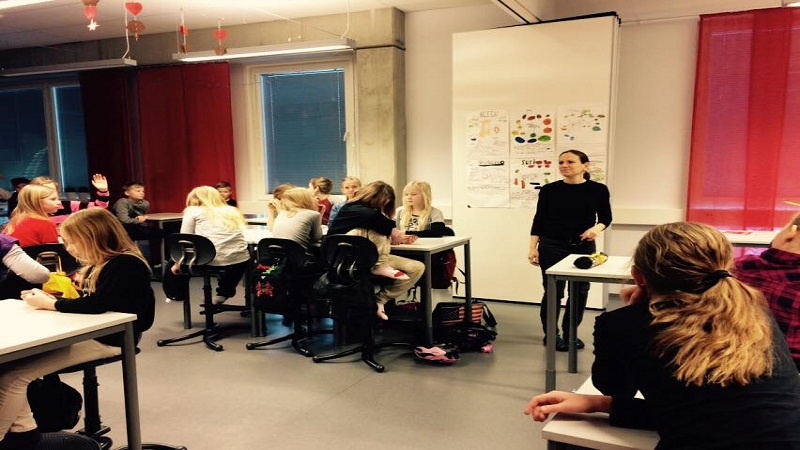Language disorders-Communication is a process that develops very early in the lives of people. However, for different reasons, it may be affected. The early detection of these problems is very important to avoid consequences in the future.
If the child manifests any of these problems, he may have problems communicating with others. Or making himself understood, which is directly associated with expressive language disorder. Or will have problems understanding others, related to receptive language disorder.
In babies and children, language develops naturally and is a process that begins at birth. For the child to evolve correctly. His language must be able to hear, understand and remember. He must also have the ability to form a speech.
Causes of language disorders in the child

- According to statistics, 1 in 20 children have symptoms of language disorder. When the cause is unknown, it is called a language development disorder.
- These problems usually begin before 4 years of age. Some mixed language disorders can be caused by a brain injury.
- Language disorders in children can also occur due to developmental problems or damage to the central nervous system, which is called aphasia.
- In these types of disorders, speech and language do not develop normally. The child may have some language skills, but others may not.
Symptoms of language disorder
A child who has language disorders may have one or two symptoms from the list that we will mention below. These signals can range from mild to severe.
On the one hand, children with receptive language problems may have difficulty understanding messages and will present the following signals:
- Difficulty in understanding what other people say .
- Difficulties to follow instructions.
- Problems to organize your thoughts and actions.
On the other hand, children with expressive language problems will present obstacles to express what they are thinking or needing. These are the signs:
- They have difficulty organizing the words in a sentence or their sentences can be simple.
- The order of the words in the sentences may not be correct.
- They have trouble finding the right words when speaking and they often use phrases.
- They have a vocabulary that is below their age level.
Types of speech disorders
There are several types of language disorders in the child. In either case, we can quickly notice some of the signs:
- Stammering Children: Child Stuttering is a problem that can be diagnosed and treated in the early stages of child development.
- Language delay: The diagnosis of a possible delay in the language should be determined by a specialist as soon as possible, because an early intervention can prevent the appearance of squeal.
- Delayed speech: Can be observed both at the level of expression and understanding.
- Infantile dyslalia: This is diagnosed when the child is unable to pronounce speech sounds correctly.
- Jotaicism in children: It is the difficulty that some children present to pronounce the letter “J”.
- Aphonia in children: It is a very common disorder in children and young people. It can be generated by diseases of the throat or by incorrect habits in speech.
- Children with problems with the “R”: This letter, generally, begins to be pronounced by children later than other letters. Therefore, some children have difficulty pronouncing it correctly.
- Childhood deafness: Some children may be born with damage to the outer, middle or inner ear or the auditory nerve. This would cause problems to listen.
The advantages of breathing well to speak correctly
Breathing and voice are processes that are closely related, to the point that if the child knows how to breathe well, he can communicate correctly.
Bad breath can cause respiratory diseases that affect speech. Some disorders such as agonies or vocal cord injuries may be due to the child having a bad respiratory technique.
When a child breathes incorrectly, inhale a smaller amount of air. Which produces less power in his voice and hinders his ability to lengthen the sounds. Because his respiratory rate is diminished.
The fundamental thing is that we are attentive to the natural development process of the language and, in case of any anomaly, go to your pediatrician to indicate the steps that must be followed.
What is a speech disorder
A speech disorder is a condition that causes problems for the person who has it to create or form the speech sounds necessary to correctly develop oral language and communicate with others. The most common speech disorders are articulation, phonological, lack of fluency or voice disorders. They are different from language disorders in children.
Those of the language refer to the difficulties in getting to communicate the meaning or message to others and understand the message of others. Up to 1 in 20 children have symptoms of a language disorder.
Causes
Defining the exact cause of a child having a problem with language skills can be difficult before 3 years of age. Or as well as others, or start talking later.
After 4 years, this type of difficulty can occur in children with other developmental problems, autism spectrum disorders, hearing loss and learning difficulties. Speech problems can also occur due to damage to the central nervous system, problems or changes in the structure or shape of the muscles and bones used to produce speech sounds damage to parts of the brain or hearing loss.
Speech disorders are different from speech delay. With the latter, the child develops speech and language in the same way as other children, but later and / or more slowly. In speech disorders, however, speech and language do not develop normally. In speech disorders, conversely, speech does not develop normally.
A voice disorder may be due to palate problems, conditions that damage the vocal cords, congenital anomalies, benign neoplasm’s or deafness.
Treatments and solutions
The treatment usually focuses on both the child and their parents. Since it is usually necessary to modify certain attitudes and teach techniques that help stimulate the language in your child.
- In any case, it is advisable to start reeducation as soon as possible.
- It should also be taken into account that children with language delays are more likely to have difficulties in learning to read and write, so it could be considered necessary to work on these areas of learning.








